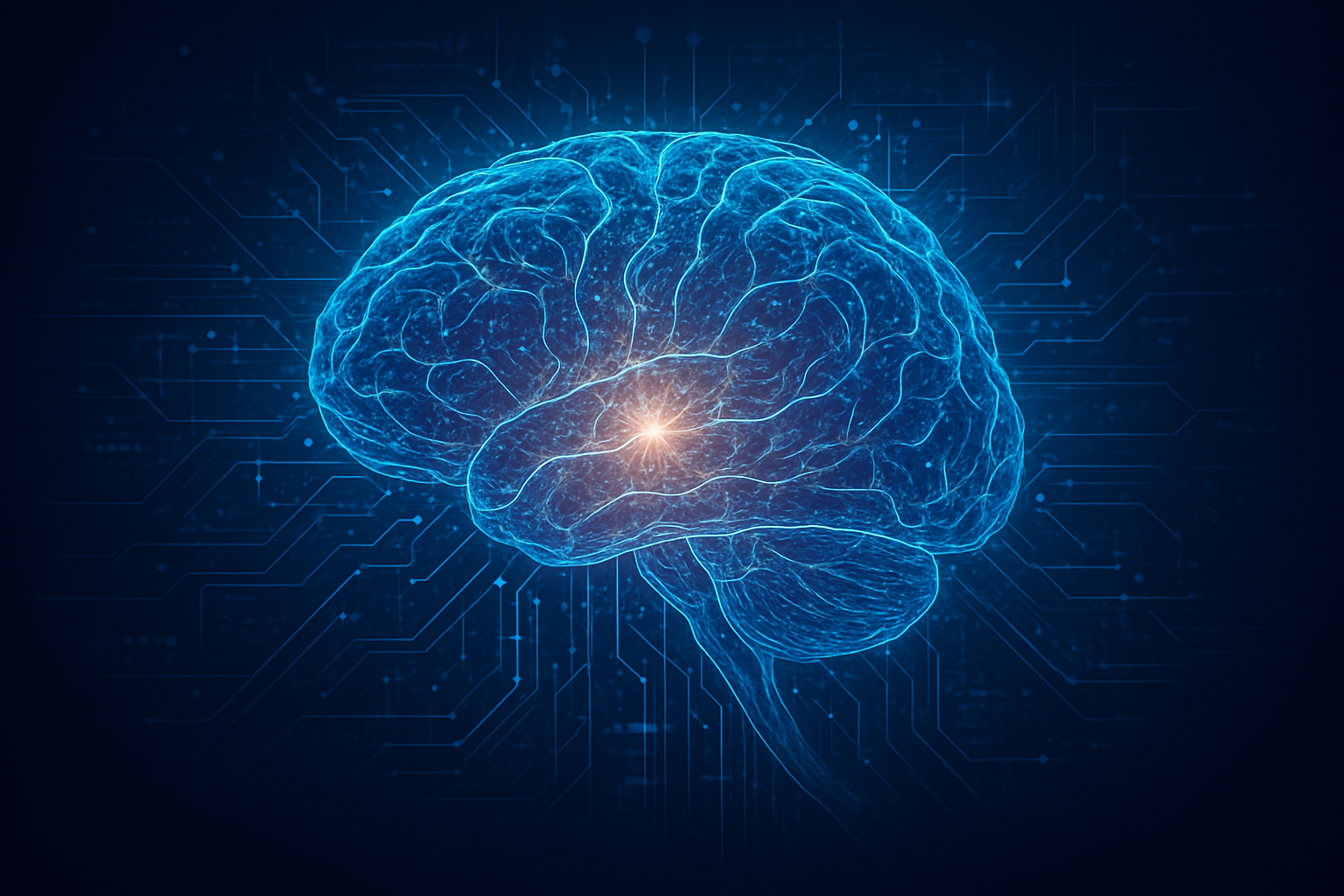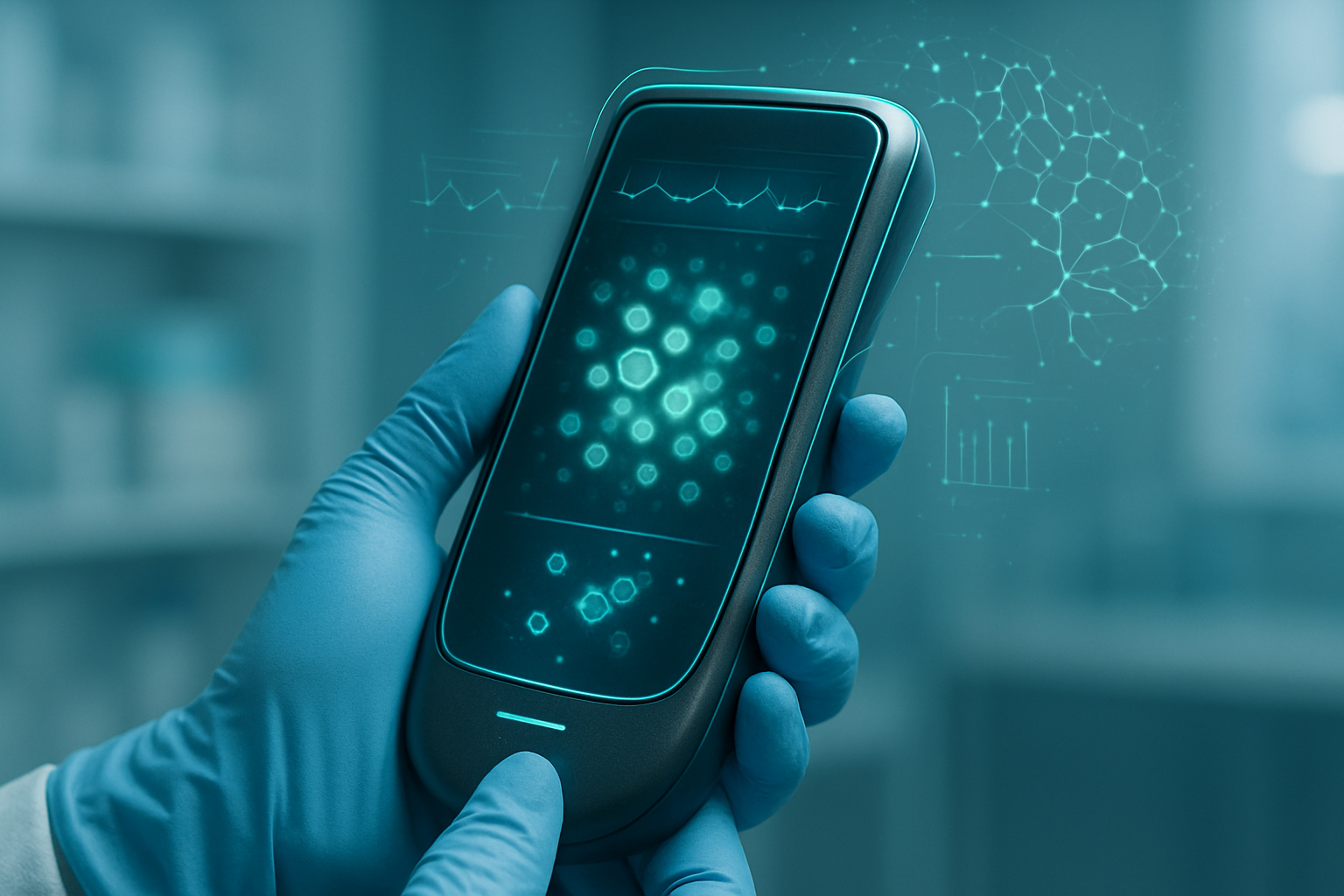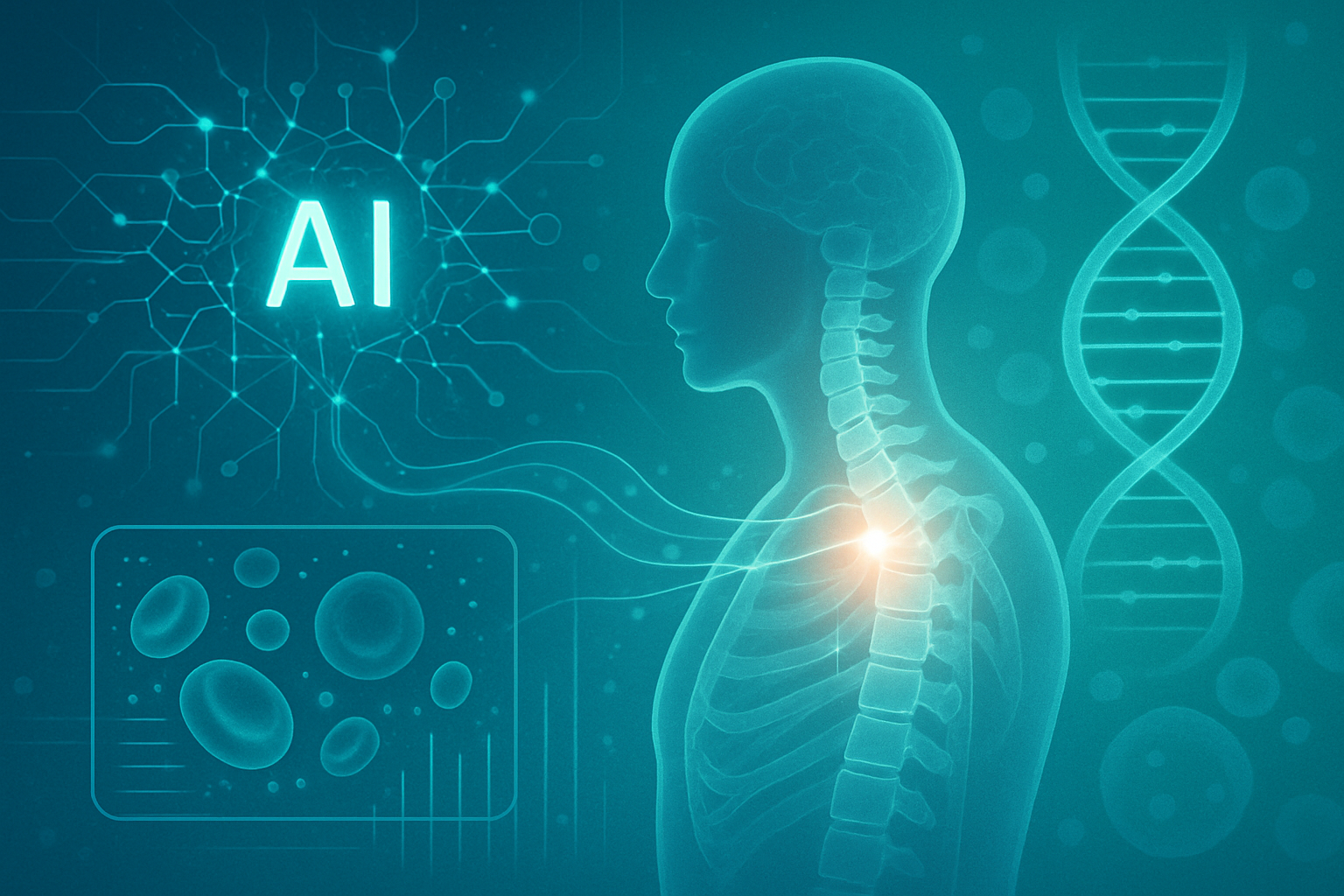The integration of advanced neuroimaging and artificial intelligence (AI) marks a pivotal moment in addressing Post-Traumatic Stress Disorder (PTSD) and other "invisible trauma" injuries. This groundbreaking synergy is immediately significant for its potential to transform diagnostic accuracy, personalize therapeutic interventions, and objectively validate the often-misunderstood neurological impacts of trauma, thereby bridging critical gaps in mental healthcare access and effectiveness.
Traditionally, diagnosing PTSD has relied heavily on subjective patient reports and clinical observations, leading to potential misdiagnosis or underdiagnosis. However, advanced neuroimaging techniques—including functional MRI (fMRI), PET scans, and EEGs—combined with sophisticated AI algorithms, can now identify objective biomarkers of structural, functional, and metabolic changes in the brain associated with trauma. This provides concrete, measurable evidence of neurological alterations, crucial for legitimizing psychiatric symptoms, encouraging patients to seek help, and ensuring adequate care. AI-driven analysis of imaging data can achieve high classification accuracy for PTSD, identifying changes in brain regions like the hippocampus, prefrontal cortex, and amygdala, which are deeply implicated in trauma responses.
Technical Deep Dive: AI and Neuroimaging Illuminate Trauma's Footprint
The technical advancements driving this revolution are multifaceted, leveraging a range of neuroimaging modalities and cutting-edge AI algorithms to extract unprecedented insights into the brain's response to trauma. Researchers are meticulously analyzing structural and functional brain alterations, pushing the boundaries of what's detectable.
Functional Magnetic Resonance Imaging (fMRI) is crucial for measuring brain activity by detecting blood flow changes. Both resting-state fMRI (rs-fMRI) and task-evoked fMRI are employed, revealing altered functional connectivity and network properties in individuals with PTSD. Structural MRI (sMRI) provides detailed anatomical images, identifying changes like reduced cortical complexity or volume loss in areas such as the hippocampus. Techniques like Diffusion Tensor Imaging (DTI) further illuminate white matter integrity. Electroencephalography (EEG) offers high temporal resolution for electrical brain activity, detecting power spectral densities and event-related potentials, while Magnetoencephalography (MEG) measures magnetic fields for superior temporal and spatial resolution, identifying abnormal neural activity in specific frequency bands within key brain regions. Positron Emission Tomography (PET) scans complete the picture by measuring brain function and metabolic activity.
These rich datasets are then fed into powerful AI algorithms. Traditional machine learning (ML) models like Support Vector Machines (SVMs) and Random Forests have shown promise in classifying PTSD with accuracies often exceeding 70%. However, deep learning (DL) models, particularly Convolutional Neural Networks (CNNs) and Graph Neural Networks (GNNs), represent a significant leap. 3D-CNNs can directly process volumetric neuroimaging data, capturing complex spatial patterns, with some studies demonstrating classification accuracies as high as 98% for PTSD using rs-fMRI. GNNs, specifically designed for network analysis, are adept at modeling the intricate relational patterns of brain connectivity, offering deeper insights into how trauma impacts these networks. Emerging transformer architectures, initially from natural language processing, are also being adapted for sequential neurophysiological data like EEG, achieving high classification accuracy by modeling long-range temporal dependencies. Furthermore, Explainable AI (XAI) techniques (e.g., SHAP, LIME) are being integrated to interpret these complex models, linking predictions to biologically meaningful neural patterns, which is vital for clinical trust and adoption. Multimodal integration, combining data from various imaging techniques, physiological markers, and even genetic information, further amplifies diagnostic precision, with accuracies often exceeding 90% for early PTSD detection.
This approach dramatically differs from previous methods, which largely relied on subjective self-reports and limited statistical analyses of specific brain regions. AI provides enhanced objectivity, precision, and the ability to uncover complex, network-level patterns that are invisible to the human eye. It also offers predictive capabilities, forecasting symptom severity and treatment response, a significant advancement over existing methods. The initial reaction from the AI research community and industry experts is one of cautious optimism. They view these advancements as a "paradigm shift" towards data-driven, precision mental health, offering objective biomarkers akin to those in other medical fields. However, concerns regarding data scarcity, algorithmic bias, generalizability, the "black box" problem of deep learning, and ethical considerations for patient safety and privacy remain paramount, underscoring the need for responsible AI development and robust validation.
Corporate Impact: Navigating the New Frontier of Mental Health AI
The burgeoning field of advanced neuroimaging and AI for PTSD and invisible trauma is creating a dynamic landscape for AI companies, tech giants, and startups, each vying for a strategic position in this transformative market. The potential for more accurate diagnostics and personalized therapies represents a significant opportunity.
AI companies are at the forefront, developing the intricate algorithms and machine learning models required to process and interpret vast amounts of neuroimaging data. These specialized firms are crafting sophisticated software solutions for early symptom detection, risk prediction, and highly personalized treatment planning. For example, GATC Health (OTC: GATC) is leveraging multiomics platforms to accelerate drug discovery and identify biomarkers for predicting PTSD risk, showcasing the deep integration of AI in pharmaceutical development. Their innovation lies in creating tools that can analyze complex data from MRI, EEG, PET, and electronic health records (EHRs) using diverse AI techniques, from convolutional neural networks to natural language processing.
Tech giants, with their immense resources, cloud infrastructure, and established healthcare ventures, are playing a crucial role in scaling these AI and neuroimaging solutions. Companies like Alphabet (NASDAQ: GOOGL), through initiatives like Verily and Google Health, and IBM (NYSE: IBM) with its Watson Health division, can provide the computational power, secure data storage, and ethical frameworks necessary to handle large, sensitive datasets. Their impact often involves strategic partnerships with research institutions and nimble startups, integrating cutting-edge AI models into broader healthcare platforms, while emphasizing responsible AI development and deployment. This collaborative approach allows them to leverage specialized innovations while providing the necessary infrastructure and market reach.
Startups, characterized by their agility and specialized expertise, are emerging as key innovators, often focusing on niche applications. Companies like MyWhatIf are developing AI-based tools specifically for personalized care, particularly for veterans and cancer patients with PTSD, offering deeply personalized reflections and insights. Other startups, such as Icometrix and Cortechs.ai, are pioneering FDA-approved machine learning applications for related conditions like Traumatic Brain Injury (TBI) by automating the detection and quantification of intracranial lesions. These smaller entities are adept at rapidly adapting to new research findings and developing highly targeted solutions, often with a clear path to market for specific diagnostic or therapeutic aids.
The companies poised to benefit most are those developing robust diagnostic tools capable of accurately and efficiently identifying PTSD and invisible trauma across various neuroimaging modalities. Firms offering AI-driven platforms that tailor treatment plans based on individual neurobiological profiles will also gain significant market share. Furthermore, biotech and pharmaceutical companies leveraging AI for biomarker identification and accelerated drug discovery for PTSD stand to make substantial gains. Companies providing secure data integration and management solutions, crucial for training robust AI models, will also be essential. The competitive landscape is intense, with a premium placed on access to large, diverse, high-quality datasets, algorithmic superiority, successful navigation of regulatory hurdles (like FDA approval), and the ability to attract interdisciplinary talent. Potential disruption includes a shift towards early and objective diagnosis, truly personalized and adaptive treatment, increased accessibility of mental healthcare through AI-powered tools, and a revolution in drug development. Companies are strategically positioning themselves around precision mental health, biomarker discovery, human-in-the-loop AI, and integrated care platforms, all while addressing the unique challenges of "invisible trauma."
Wider Significance: A New Era for Mental Health and AI
The confluence of advanced neuroimaging and AI for PTSD and invisible trauma extends far beyond clinical applications, representing a profound shift in the broader AI landscape and our understanding of human cognition and mental health. This convergence is not merely an incremental improvement but a foundational change, akin to previous major AI milestones.
This development fundamentally alters the approach to mental health, moving it from a largely subjective, symptom-based discipline to one grounded in objective, data-driven insights. Traditionally, conditions like PTSD were diagnosed through patient interviews and behavioral assessments, which, while valuable, can be prone to individual variability and stigma. Now, advanced neuroimaging techniques (fMRI, PET, EEG, sMRI) can detect microscopic structural changes and dynamic functional alterations in the brain that are invisible to the naked eye. When paired with AI, these techniques enable objective diagnosis, early detection, and the precise identification of PTSD subtypes. This capability is particularly significant for "invisible injuries" such as those from mild traumatic brain injury or childhood trauma, providing quantifiable evidence that can validate patient experiences and combat stigma. AI's ability to uncover novel connections across brain studies helps researchers understand the complex interplay between neural networks and cognitive processes, revealing how trauma alters brain activity in regions like the hippocampus, amygdala, and prefrontal cortex, and even sensory networks involved in flashbacks.
In the broader AI landscape, this application aligns perfectly with major trends. It epitomizes the drive towards personalized healthcare, where treatments are tailored to an individual's unique biological and neural profile. It leverages AI's strength in data-driven discovery, enabling rapid pattern analysis of the immense datasets generated by neuroimaging—a capability previously seen in radiology and cancer detection. The synergy is also bidirectional: AI draws inspiration from the brain's architecture to develop more sophisticated models, while simultaneously aiding in the development of neuroprosthetics and brain-computer interfaces. This pushes the boundaries of AI-augmented cognition, hinting at a future where AI could enhance human potential. The impact is profound, promising improved diagnostic accuracy, a deeper understanding of pathophysiology, reduced stigma, and a revolution in drug discovery and treatment optimization for neurological disorders.
However, significant concerns accompany this transformative potential. Privacy and confidentiality of highly sensitive brain data are paramount, raising questions about data ownership and access. Algorithmic bias is another critical issue; if AI models are trained on biased datasets, they can perpetuate and amplify existing societal inequalities, leading to misdiagnosis or inappropriate treatment for diverse populations. The "black box" nature of some AI models can hinder clinical adoption, as clinicians need to understand why an AI makes a particular recommendation. Over-reliance on AI without human expert oversight risks misdiagnosis or a lack of nuanced human judgment. Furthermore, data scarcity and the challenge of model generalizability across diverse populations remain hurdles.
Compared to previous AI milestones, this development shares similarities with AI's success in other medical imaging fields, such as ophthalmology and radiology, where AI can detect abnormalities with expert-level accuracy. The ability of AI to spot "invisible" brain damage on MRIs, previously undetectable by human radiologists, represents a similar diagnostic leap. Like DeepMind's AlphaFold, which revolutionized protein folding prediction by tackling immense biological data, AI in neuroscience is essential for synthesizing information from vast neuroimaging sources that exceed human cognitive capacity. This also parallels the broader AI trend of bringing objective, data-driven insights to fields traditionally dominated by subjective assessment, aiming to refine the very definition of mental illnesses.
Future Developments: The Horizon of Precision Mental Health
The trajectory of advanced neuroimaging and AI for PTSD and invisible trauma points towards a future where mental healthcare is not only more precise and personalized but also more accessible and proactive. Both near-term and long-term developments promise to fundamentally reshape how we understand and manage the neurological aftermath of trauma.
In the near term, we can expect significant enhancements in objective diagnosis and subtyping. AI models, already demonstrating high accuracy in detecting PTSD from brain imaging, will become even more refined, identifying specific neural signatures and biomarkers linked to various trauma-related conditions. This will extend to predicting symptom severity and trajectory, allowing for earlier, more targeted interventions. Multimodal data integration, combining diverse neuroimaging techniques with AI, will become standard, providing a more comprehensive picture of brain structure, function, and connectivity to improve classification and prediction accuracy. Beyond imaging, AI algorithms are being developed to detect PTSD with high accuracy by analyzing voice data and facial expressions, particularly beneficial for individuals with limited communication skills. Furthermore, generative AI is poised to revolutionize clinician training, offering simulated interactions and immediate feedback to help therapists develop foundational skills in trauma-focused treatments.
Looking further ahead, the long-term vision is the realization of "precision mental health." The ultimate goal is to use brain scans to not only distinguish PTSD from other illnesses but also to predict individual responses to specific treatments, such as SSRIs or talk therapy. This will enable truly tailored drug regimens and therapeutic approaches based on a patient's unique brain profile and genetic data. Advanced neuroimaging, combined with AI, will deepen our understanding of the neurobiological underpinnings of PTSD, including structural, metabolic, and molecular changes in key brain regions and the identification of gene pathways associated with risk versus resilience. We can anticipate the development of neuro-behavioral foundation models to map stress-related neural circuits, enabling better treatment prediction and stratification. Real-time monitoring of brain activity via AI could allow for adaptive interventions, adjusting treatment plans dynamically, and AI will guide next-generation neuromodulation therapies, precisely targeting implicated brain circuits.
The potential applications and use cases on the horizon are vast. Beyond enhanced diagnosis and classification, AI will enable personalized treatment and management, predicting treatment response to specific psychotherapies or pharmacotherapies and tailoring interventions. In emergency settings, AI's ability to quickly analyze complex data can flag potential mental health risks alongside physical injuries. AI-powered virtual therapists and chatbots could offer 24/7 emotional support and crisis intervention, addressing accessibility gaps. Augmented Reality (AR) therapy, enhanced by AI, will offer interactive, real-world simulations for exposure therapy.
However, significant challenges must be addressed. Data scarcity, incompleteness, and algorithmic bias remain critical hurdles, demanding vast, high-quality, and diverse datasets for training generalizable models. Clinical implementation requires refining workflows, addressing the high cost and accessibility of advanced imaging, and ensuring real-world interaction of AI tools. Ethical and privacy concerns, including patient data security and the appropriate level of human oversight for AI tools, are paramount. Experts predict a strong shift towards objective biomarkers in psychiatry, revolutionizing PTSD management through early detection and personalized plans. They emphasize continued interdisciplinary collaboration and a critical focus on generalizability and reproducibility of AI models. Crucially, AI is seen as an assistant to therapists, enhancing care rather than replacing human interaction.
Comprehensive Wrap-up: A New Dawn for Trauma Care
The fusion of advanced neuroimaging and artificial intelligence marks a watershed moment in our approach to Post-Traumatic Stress Disorder and other "invisible traumas." This powerful synergy is fundamentally reshaping how these conditions are understood, diagnosed, and treated, promising a future where mental healthcare is both more objective and deeply personalized.
The key takeaways from this transformative development are clear: AI-driven analysis of neuroimaging data is dramatically enhancing the accuracy of PTSD diagnosis and prediction, moving beyond subjective assessments to identify objective biomarkers of trauma's impact on the brain. Multimodal neuroimaging, combining various techniques like fMRI and PET, is providing a comprehensive view of complex neural mechanisms, enabling personalized treatment strategies such as AI-enhanced Transcranial Magnetic Stimulation (TMS). This paradigm shift is also allowing for the detection of "invisible" brain damage previously undetectable, offering crucial validation for those suffering from conditions like TBI or long-term psychological trauma.
In the annals of AI history, this represents a pivotal advancement, pioneering the era of precision psychiatry. It underscores AI's growing sophistication in interpreting high-dimensional medical data, pushing the boundaries of diagnostics and personalized intervention. Moreover, the sensitive nature of mental health applications is driving the demand for Explainable AI (XAI), fostering trust and addressing critical ethical concerns around bias and accountability. Given the global burden of mental illness, AI's potential to enhance diagnostic efficiency and personalize treatment positions this development as a significant contribution to global health efforts.
The long-term impact is poised to be truly transformative. We anticipate a fundamental paradigm shift in mental healthcare, evolving into a data-driven, biology-informed field. This will lead to earlier and more effective interventions, reducing chronic suffering and improving long-term outcomes for trauma survivors. Objective evidence of brain changes will help destigmatize mental health conditions, encouraging more individuals to seek help. AI could also revolutionize drug discovery and therapeutic development by providing a deeper understanding of PTSD's neural underpinnings. Crucially, the widespread adoption will hinge on robust ethical frameworks ensuring data privacy, mitigating algorithmic bias, and maintaining human oversight. Ultimately, AI-powered tools hold the potential to democratize access to mental healthcare, particularly for underserved populations.
In the coming weeks and months, watch for an acceleration of large-scale, multimodal studies aimed at improving the generalizability and reproducibility of AI models across diverse populations. Expect continued advancements in personalized and precision neuroimaging, with institutions like the Stanford Center for Precision Mental Health actively developing AI-based neuro-behavioral foundational models. Clinical trials will increasingly feature AI-enhanced therapeutic innovations, such as AI-personalized TMS, dynamically adjusting treatments based on real-time brain activity for more targeted and effective interventions. Further validation of biomarkers beyond imaging, including blood-based markers and physiological data, will gain prominence. Critical discussions and initiatives around establishing clear ethical guidelines, data governance protocols, and regulatory frameworks will intensify to ensure responsible and equitable implementation. Early pilot programs integrating these AI-powered diagnostic and treatment planning tools into routine clinical practice will emerge, refining workflows and assessing real-world feasibility. Finally, research will continue to broaden the scope of "invisible trauma," using advanced neuroimaging and AI to identify subtle brain changes from a wider range of experiences, even in the absence of overt behavioral symptoms. The convergence of neuroscience, AI, and psychiatry promises a future where trauma’s invisible scars are finally brought into the light, enabling more effective healing than ever before.
This content is intended for informational purposes only and represents analysis of current AI developments.
TokenRing AI delivers enterprise-grade solutions for multi-agent AI workflow orchestration, AI-powered development tools, and seamless remote collaboration platforms.
For more information, visit https://www.tokenring.ai/.


